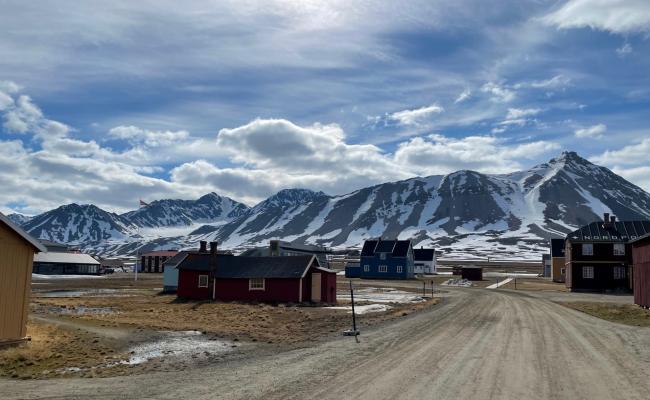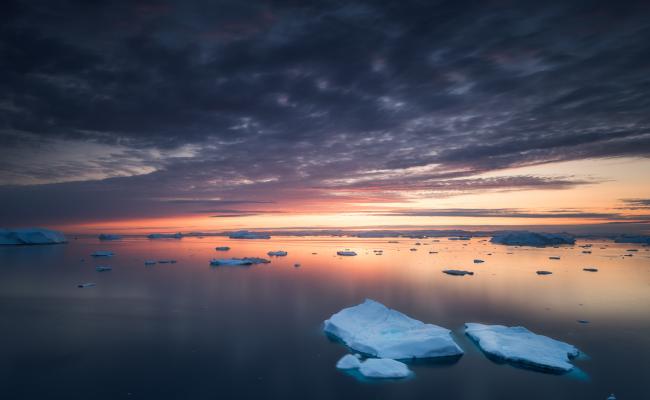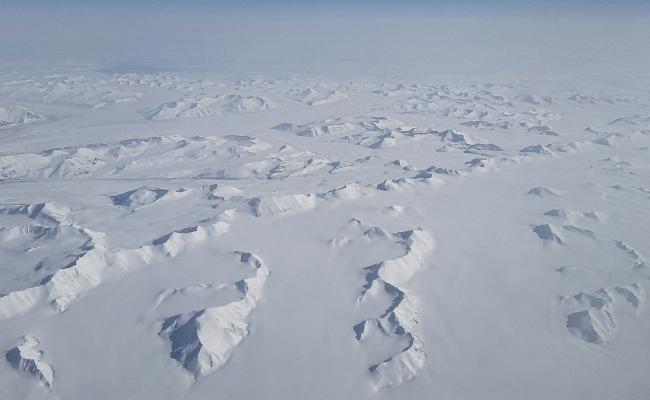Arctic Frontiers 2025: "Norway is a Superpower in the Arctic"
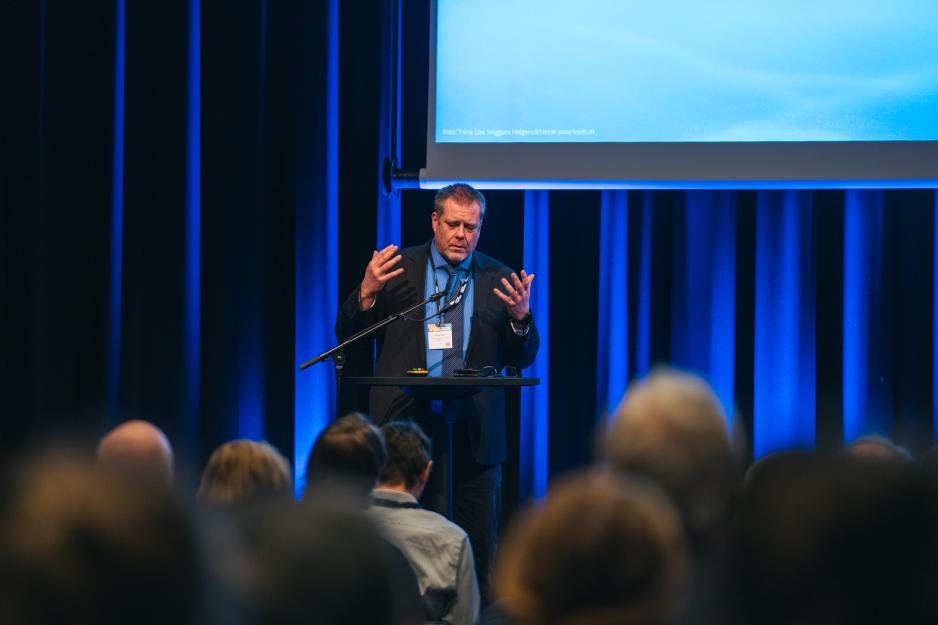
Jørgen Berge, Dean and Professor at UiT, the Arctic University of Norway, and Chair of the Arctic Ocean 2050 research program, pictured during the Arctic Frontiers conference in Tromsø. (Photo: David Jensen/Arctic Frontiers)
Tromsø, Northern Norway (High North News): The new Norwegian research initiative Arctic Ocean 2050 will ensure that Norway continues to be world-leading in polar research. "The main objective is that we as a nation have the knowledge we need to manage a new ocean," says Jørgen Berge, Dean and Professor at UiT, the Arctic University of Norway.
Last summer, the research projects GoNorth and the Future Arctic Ocean merged into Norway's largest research project, the Arctic Ocean 2050 (Polhavet 2050).
As the ice melts in the world's northernmost ocean, the research project is to ensure knowledge and science diplomacy to maintain predictability and stability in the area.
"We who are alive today will likely be the first modern humans to experience the ice-free Arctic Ocean," says Jørgen Berge, Dean and Professor at UiT – the Arctic University of Norway and Chair of the project.
Observational pyramid
He presented the project at this year's edition of the Arctic Frontiers conference in Tromsø, Northern Norway.
Arctic Ocean 2050 will research the changes in the Arctic Ocean and implement a complete observational pyramid, including satellites, drones, aircraft, vessels, platforms, and underwater observational systems.
"The Arctic Ocean 2050 will have an interdisciplinary approach in order to understand the changes in the Arctic Ocean," said Berge from the stage at the conference.
"Policy, business, energy, international law, and climate, ecosystem, and ocean research are among the topics that the Arctic Ocean 2050 project will cover."
The funding has not yet been secured, but Berge hopes the project will be part of the state budget this fall.
Two-part
What role do arenas like these conferences play when it comes to funding?
"They are very important," emphasizes Berge to HNN and continues:
"It is a two-part focus. One is the connection one gains to other institutions and researchers at the academic level. The other aspect is the opportunity to make things visible. It provides a visibility and opportunity to shed light on something."
Important meeting place
Arctic Frontiers is one of the largest Arctic conferences, attracting about 1,600 researchers, business leaders, and politicians across the Arctic.
Conferences such as Arctic Frontiers are essential for researchers to gather support and ensure project funding.
The ten-year Arctic Ocean 2050 project, which will start in January 2026, seeks NOK 100 million in funding annually. The project's 18 participating universities and research institutions will contribute the same amount over the same period.
In total, the project will cost about NOK 200 million per year.
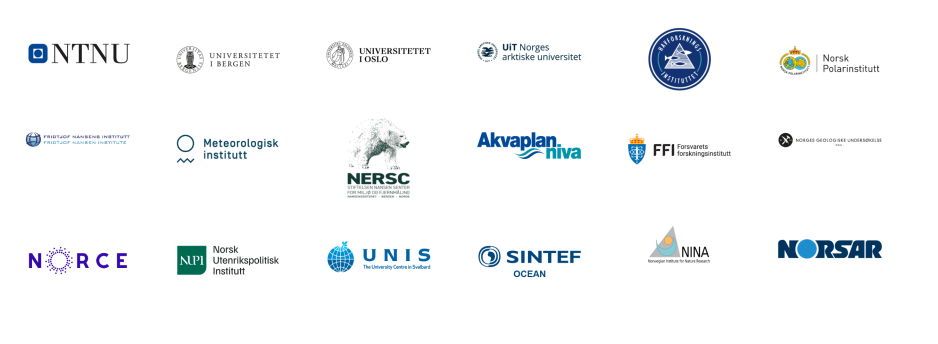
18 Norwegian universities and research instituations are part of the Arctic Ocean 2050 project.
The International Polar Year
The research project was presented under the topic of the International Polar Year (IPY) and focused on research cooperation.
The next International Polar Year, held in 2032-2033, will be the fifth in line since 1882. The Polar Year is a major international research program focusing intensively on the polar regions.
Although the project is a Norwegian initiative and will be based on the Norwegian part of the Arctic Ocean, it will be designed to facilitate strong international pan-Arctic cooperation.
Extensive research plan
"Our ambition is for the Arctic Ocean 2050 project to be an international structure for the international activity concentrated on the Arctic Ocean. We will focus on our part of the Arctic, our sector, and we will do the research we need. However, we are creating an extensive research plan that contains enough international links to work as a structure for what the global community will do during IPY," explains Berge.
An international scientific council with representatives from the Arctic's most central actors will ensure that the Arctic Ocean 2050 cooperates with other nations, non-state organizations, and industries to provide a holistic and inclusive perspective.
The Research Council of Norway and the Norwegian Polar Institute have been tasked by the Ministries of Knowledge and Climate and Environment with preparing Norwegian efforts for the International Polar Year in 2032-2033.
On the Arctic Ocean 2050's website, they write that the establishment of the project will constitute the core of the Norwegian research efforts in the Arctic during the upcoming polar year.
Jørgen Berge says that Norway is an Arctic superpower and must be the research leader in the Arctic Ocean during the Arctic Frontiers conference in Tromsø. (Photo: Birgitte Annie Hansen)
Norwegian research leadership
In an op-ed in the Norwegian newspaper VG, Berge, and Researcher Andreas Østhagen at the Fridtjof Nansen Institute writes that the Norwegian research system supports cooperation that this "provides a solid foundation for cooperation across country borders, which can contribute to stability in the Arctic, an area that has become an important piece in a geopolitical game."
The alternative is that Norway is both outcompeted and outmaneuvered in the Arctic Ocean.
"We are a superpower in the Arctic. If we consider the volume of research happening in the Arctic, we are clearly the biggest on Svalbard, and we are very big in the research happening in the Arctic Ocean," says Berge to HNN.
"We have a responsibility to take care of and manage this. The main objective is that we as a nation have the knowledge we need to manage a new ocean," he states.
Svalbard - the gateway to the Arctic Ocean
The research cooperation will also strengthen Norway's position on Svalbard.
In the Svalbard white paper of May last year, the Norwegian government stated it would facilitate national research on the archipelago while also affirming the Norwegian research leadership.
"Svalbard is not a research object in this context, but a platform," says Berge on Svalbard's role in the Arctic Ocean 2050 project and continues:
"It is the gateway to the Arctic Ocean, and it will be for us as well. Although this project will not include Svalbard research as such, the Norwegian activity in the Arctic Ocean will depend on increased activity on and around Svalbard as a point of departure."
One of the government's aims for research and education on Svalbard is precisely that the archipelago is to be further developed as a platform for international research, higher education, and climate surveillance:
"The archipelago's infrastructure and unique research opportunities will be exploited even better than today. The infrastructure must be supplemented with measures to further strengthen Svalbard's position within international knowledge development."


